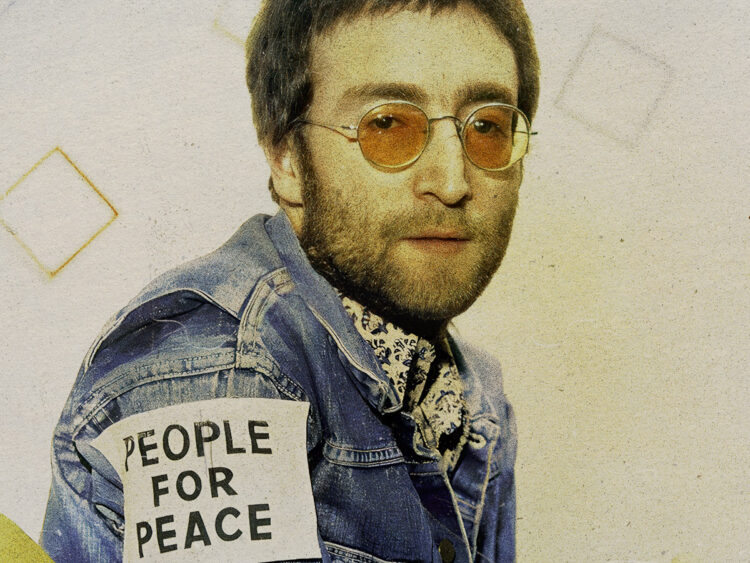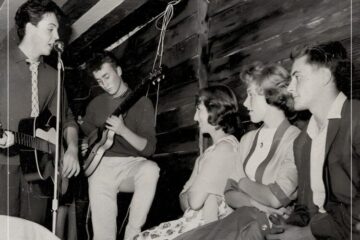News Problematic Poetry: The reason why John Lennon called a Neil Young song “garbage”
Since his death, John Lennon has been hero-worshipped the world over, seemingly reaching a quasi-demigod status like no other. However, it is this notion that the late bespectacled Beatle took offence to when Neil Young once decided to worship rock’s fallen soldiers.
Heroes had little place in Lennon’s philosophy. He once adored Elvis Presley but soon found himself calling him “bullshit”. Likewise, Bob Dylan was once his “idol” but found himself later dubbing him “pathetic”. Ironically, Lennon’s view was that the only thing that should be worshipped is a peaceful life.
In fact, the man who once claimed to be bigger than Jesus Christ recognised, with a degree of duality, that the last thing that should be worshipped is the fast-living of troublesome rockstars. Young’s classic track ‘My My, Hey Hey (Out of the Blue)’ explores this clichéd sentiment and, sadly, is now also intrinsically linked to the death of Kurt Cobain after the Nirvana leader quoted the line, “It’s better to burn out than to fade away,” as part of his suicide note.
“When he died and left that note, it struck a deep chord inside of me. It fucked with me,” Young later commented. “I, coincidentally, had been trying to reach him. I wanted to talk to him. Tell him only to play when he felt like it,” the ‘Heart of Gold’ singer continued.
Cobain’s death profoundly affected Young and encouraged him to write the album Sleeps With Angels, a project that he dedicated to the late Nirvana frontman. Alas, Lennon wasn’t around to hear this, and the former track stuck in his craw.
Heartbreakingly, the track Cobain quoted in his final act celebrates fallen rockstars who lived in the fast lane and, as a result, tragically died prematurely. Lennon was from a different school of thought. He didn’t believe that it was healthy for Young to use his platform to glamorise this lifestyle, and he publicly condemned the lyric.
During one of his final interviews, Lennon told Playboy: “I hate it. It’s better to fade away like an old soldier than to burn out. If he was talking about burning out like Sid Vicious, forget it. I don’t appreciate the worship of dead Sid Vicious or of dead James Dean or dead John Wayne. It’s the same thing. Making Sid Vicious a hero, Jim Morrison — it’s garbage to me. I worship the people who survive — Gloria Swanson, Greta Garbo”.
Lennon continued: “They’re saying John Wayne conquered cancer — he whipped it like a man. You know, I’m sorry that he died and all that — I’m sorry for his family — but he didn’t whip cancer. It whipped him. I don’t want Sean worshipping John Wayne or Johnny Rotten or Sid Vicious. What do they teach you? Nothing. Death. Sid Vicious died for what? So that we might rock? I mean, it’s garbage you know.”
At this stage, Lennon was fixed on reformation. His own songs like ‘Woman’ and ‘Jealous Guy’ candidly revealed his own recalibration. He preached peace in the world and strived to honour that message internally after a rather high-wire youth.
As his comments concluded: “If Neil Young admires that sentiment so much, why doesn’t he do it? Because he sure as hell faded away and came back many times, like all of us. No, thank you. I’ll take the living and the healthy.”
Although Young admired Lennon greatly, he felt compelled to come out and defend the meaning of his creation, which he felt had been misconstrued by the bespectacled Beatle. The Canadian explained: “The essence of the rock ‘n’ roll spirit to me, is that it’s better to burn out really bright than to sort of decay off into infinity. Even though if you look at it in a mature way, you’ll think, ‘Well, yes, you should decay off into infinity, and keep going along.’ Rock ‘n’ roll doesn’t look that far ahead. Rock ‘n’ roll is right now. What’s happening right this second.”
While Young’s song does undoubtedly celebrate tragedy, in his view, it was more about the immediacy of rock ‘n’ roll than anything else. He didn’t have the troublesome side of rock ‘n’ roll life in mind but rather its ability to eke out some energy. Although Lennon detested the message, he embodied Young’s definition of the essence of rock ‘n’ roll to a tee, which is deeply ironic considering his stance.




